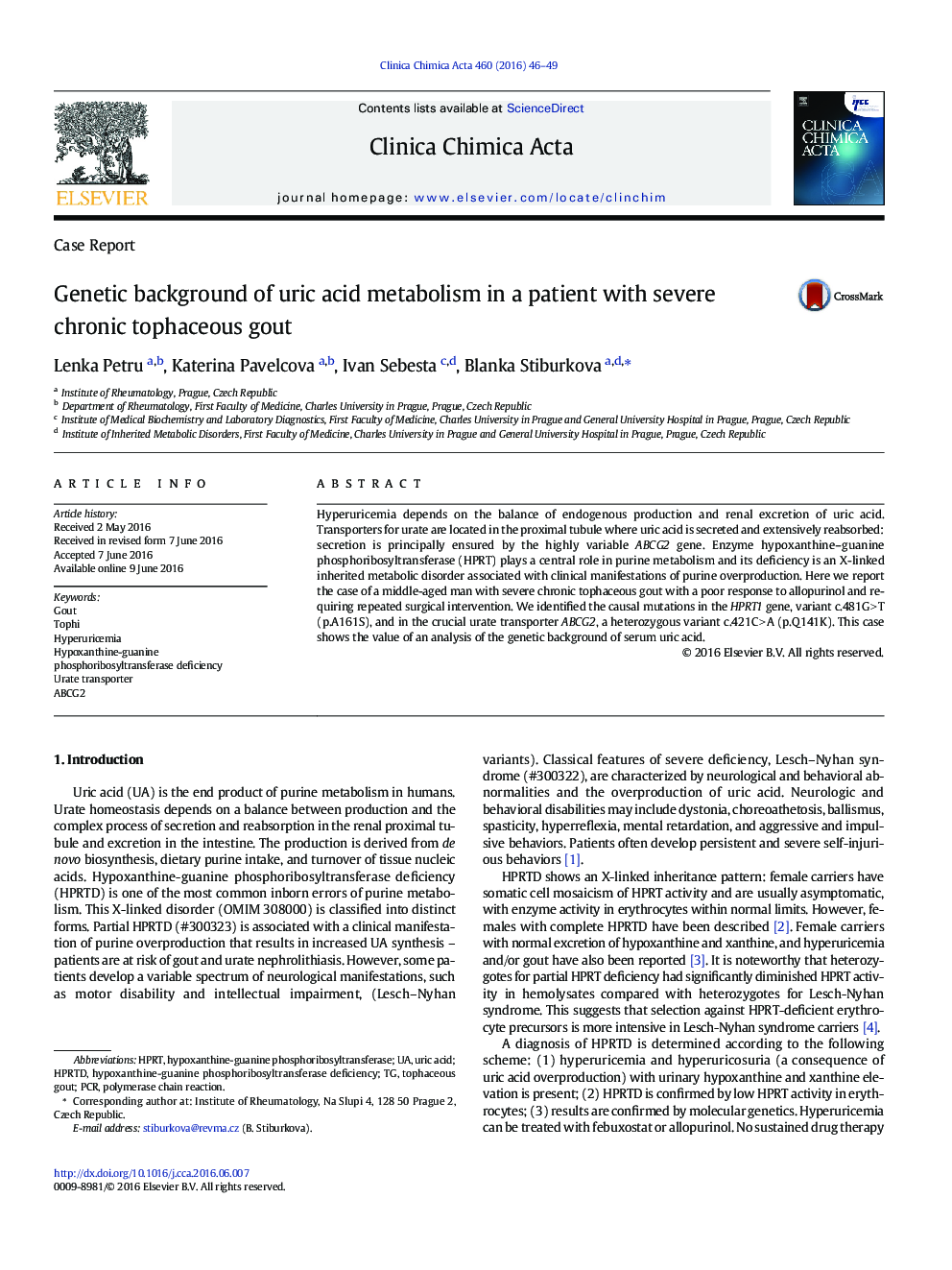| Article ID | Journal | Published Year | Pages | File Type |
|---|---|---|---|---|
| 1965052 | Clinica Chimica Acta | 2016 | 4 Pages |
•Hyperuricemia depends on the balance of production and renal excretion of uric acid.•Gout based on hyperuricemia is a common disease with a genetic predisposition.•HPRT deficiency is associated with a clinical manifestation of purine overproduction.•ABCG2 is a high-capacity urate transporter, the dysfunction of which raises gout/hyperuricemia risk.•This is the first report on HPRT deficiency complicated by ABCG2 dysfunction allelic variant.
Hyperuricemia depends on the balance of endogenous production and renal excretion of uric acid. Transporters for urate are located in the proximal tubule where uric acid is secreted and extensively reabsorbed: secretion is principally ensured by the highly variable ABCG2 gene. Enzyme hypoxanthine–guanine phosphoribosyltransferase (HPRT) plays a central role in purine metabolism and its deficiency is an X-linked inherited metabolic disorder associated with clinical manifestations of purine overproduction. Here we report the case of a middle-aged man with severe chronic tophaceous gout with a poor response to allopurinol and requiring repeated surgical intervention. We identified the causal mutations in the HPRT1 gene, variant c.481G > T (p.A161S), and in the crucial urate transporter ABCG2, a heterozygous variant c.421C > A (p.Q141K). This case shows the value of an analysis of the genetic background of serum uric acid.
